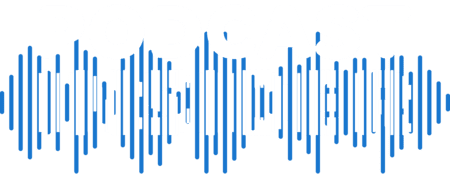Here at Blubrry, we have a long history of encouraging podcasters to retain control of their own feed. Simply put, that means that your feed should look something like yoururl.com/feed – NOT yourpodcastservice.com/yourpodcastservice.xml.
Controlling your own podcast feed allows you to take it with you easily should you decide to change podcast service providers, and also protects you against outages or other problems that might occur with your feed provider.
But some might wonder how and why Blubrry arrived at this approach when other companies in the podcast services community advocate controlling the podcasters feed. Following is Blubrry CEO Todd Cochrane’s story, explaining why he took and Blubrry adopted the philosophy of Your Show, Your Brand, Your feed.
“In October of 2004. when I launched my show, I was using MovableType. There were some hacks used to get the feed podcast-compliant. At the time, it truly was a technical challenge, and a lot of folks across a variety of systems were hand-writing their feeds or using rudimentary software tools. In mid-2005, around the same time that Apple opened up Podcast support on iTunes, the folks at FeedBurner – which had been around since 2003 – updated their service to support all of the newly announced iTunes tags.”
Podcasters who didn’t have an easy way to implement those tags or create their own feed ran to Feedburner, says Cochrane. After all, it was an easy fix to what was, at the time, a difficult problem.
But “The geek in me screamed “No!” because, at the time, podcatcher software applications – which are largely extinct today – ruled the roost as the top podcast download and consumption tool,” explains Cochrane. “This was in the iPod days – no iPhone – so in our shows, we promoted our RSS feed in every episode as a primary way to subscribe. Promoting geeknewscentral.com/podcast.xml was a lot easier than promoting Feedburner as the place to sign up for my show. Everyone was very sensitive to their feeds, as a lot of directories launched then and made the mistake of not including shows’ sources feeds in the directory listings, which they often had to quickly correct as the outcry of podcasters was fierce.”
But all the while, Cochrane was producing his show and building his brand while growing a dedicated following around his site where he also fed listeners extra content including daily blog posts and special content surrounding events he attended. So it made no sense, he realized, to hand over his brand to a totally different company that could potentially dilute his brand or possibly control or cause delays in content delivery, like what happens today on FeedBurner.
And sometimes, putting your feed in another company’s control can lead to unexpected consequences. “When we launched RawVoice/Blubrry, and then later PowerPress, we had already witnessed podcast services going out of business and the podcasts that relied on their services, leaving podcasters and their audiences high and dry. I told our team that no matter what, we never want to put any of the users that use our tools or services in that position.”
As a result, the company has built a menu of services and products that allow a podcaster to build their podcast and brand as well as control their feed to exist and thrive independent of Blubrry. “Today Blubrry could cease to exist, and folks that use our tools would only need to find new hosting and stats,” explains Cochrane. “Customers would never lose their show, brand, feed, or audience.”
“It is a core part of the philosophy of this company that we fundamentally believe a podcaster should own and control his own intellectual property. This includes a .com, site, feed, brand, etc. Sure we have some customers that use a Bubrry.com provided RSS feed for their show, but that is less than 1% of our business and usually only when they have very special publishing needs. 99% of our customers own their stack and rely on our tools to power it. We believe if we are providing superior tools, service, and support that we will be rewarded with subscribers using our services.”
Recently, says Cochrane, a few naysayers in the podcasting community have asserted that Blubrry is trying to scare folks into using their own feeds. That’s not true, he asserts. “Our company fundamental beliefs is the genesis of how we developed this philosophy. With 65,000+ podcasters using PowerPress alone we know that our message resonates with a lot of creators out theirs. Podcasters need to weigh their options before launching a show, and if they decide to take control of their brand after launching with another service, we are here to help them.”
While Cochrane realizes he has a fundamental difference in philosophy from other podcast service companies, he believes Blubrry still offers the best possible services and products for those in the podcasting community. “I think our philosophy is a best practice for podcasters. While other services out there are doing interesting things, as a podcaster, first I want to make sure I control my stack top to bottom and use cool tools I so choose and not be limited by any service provider.”





